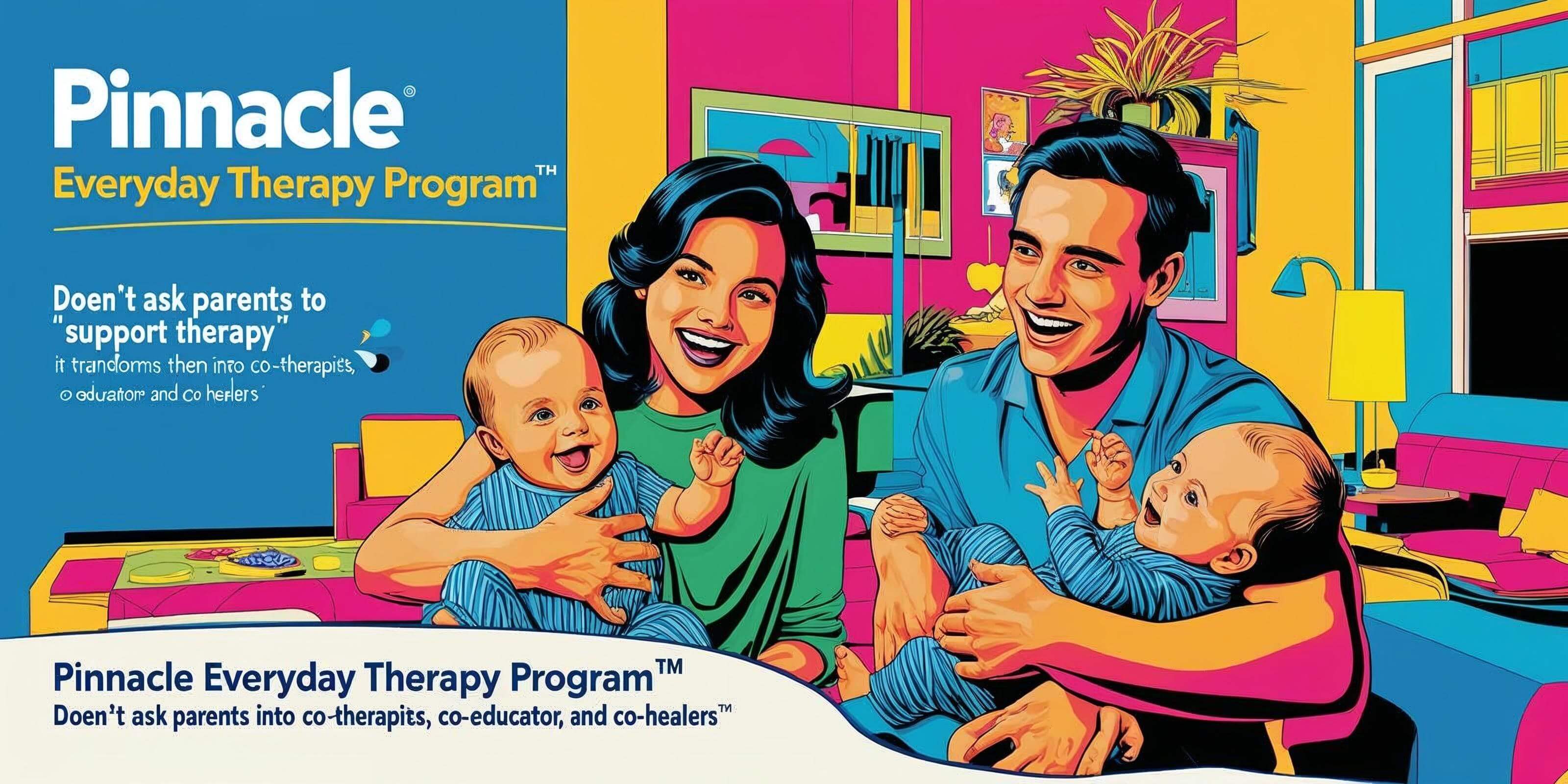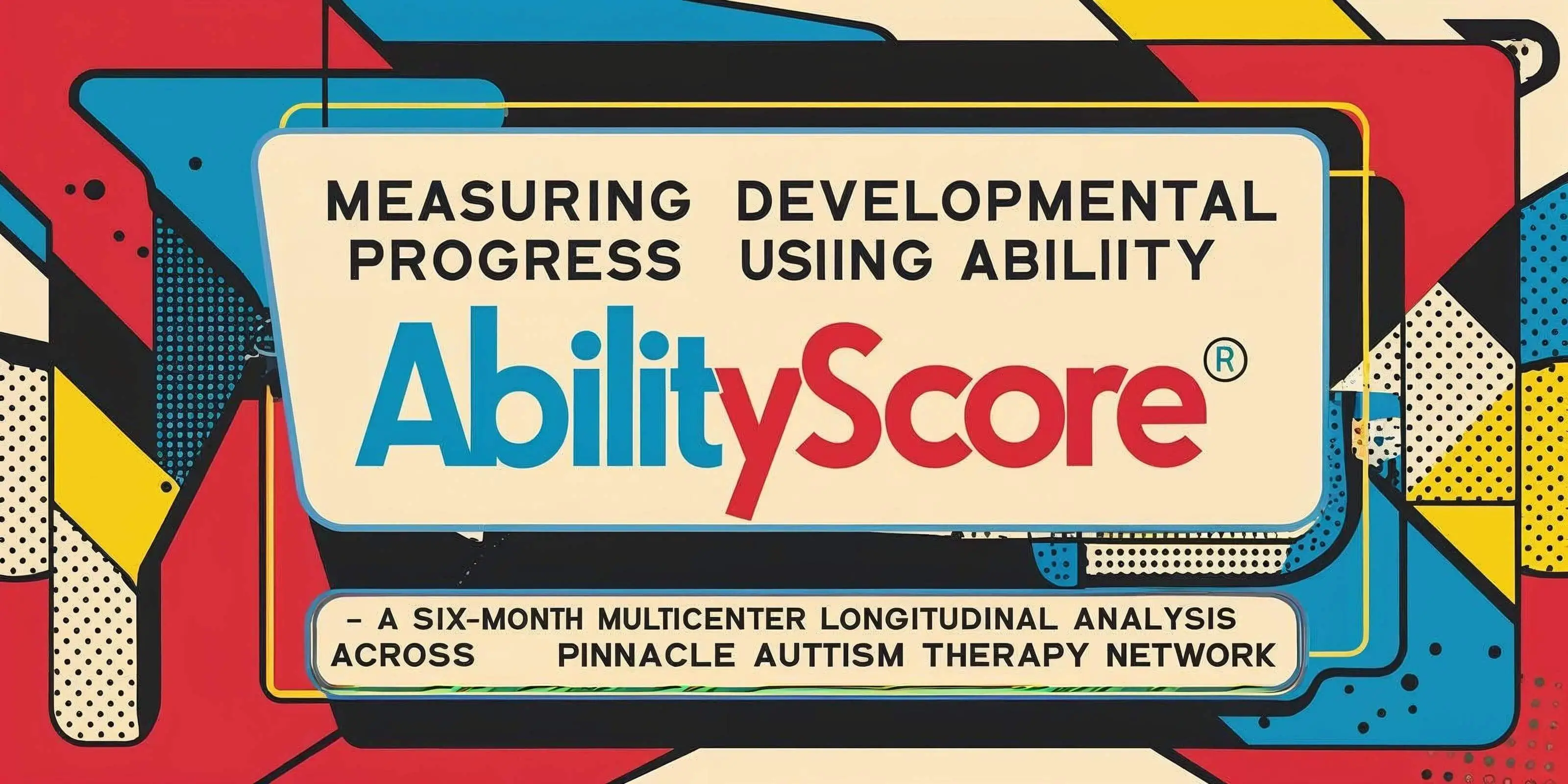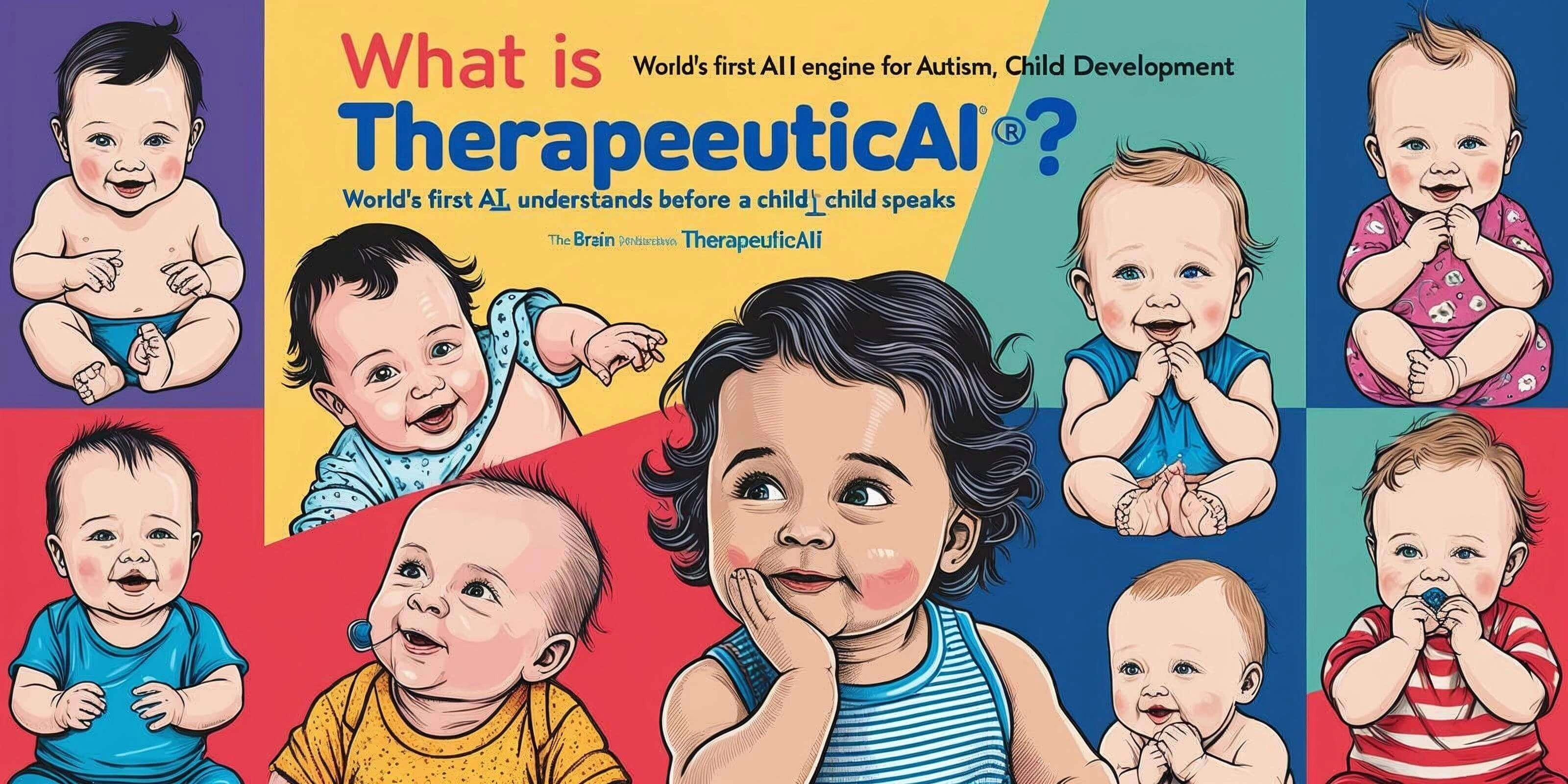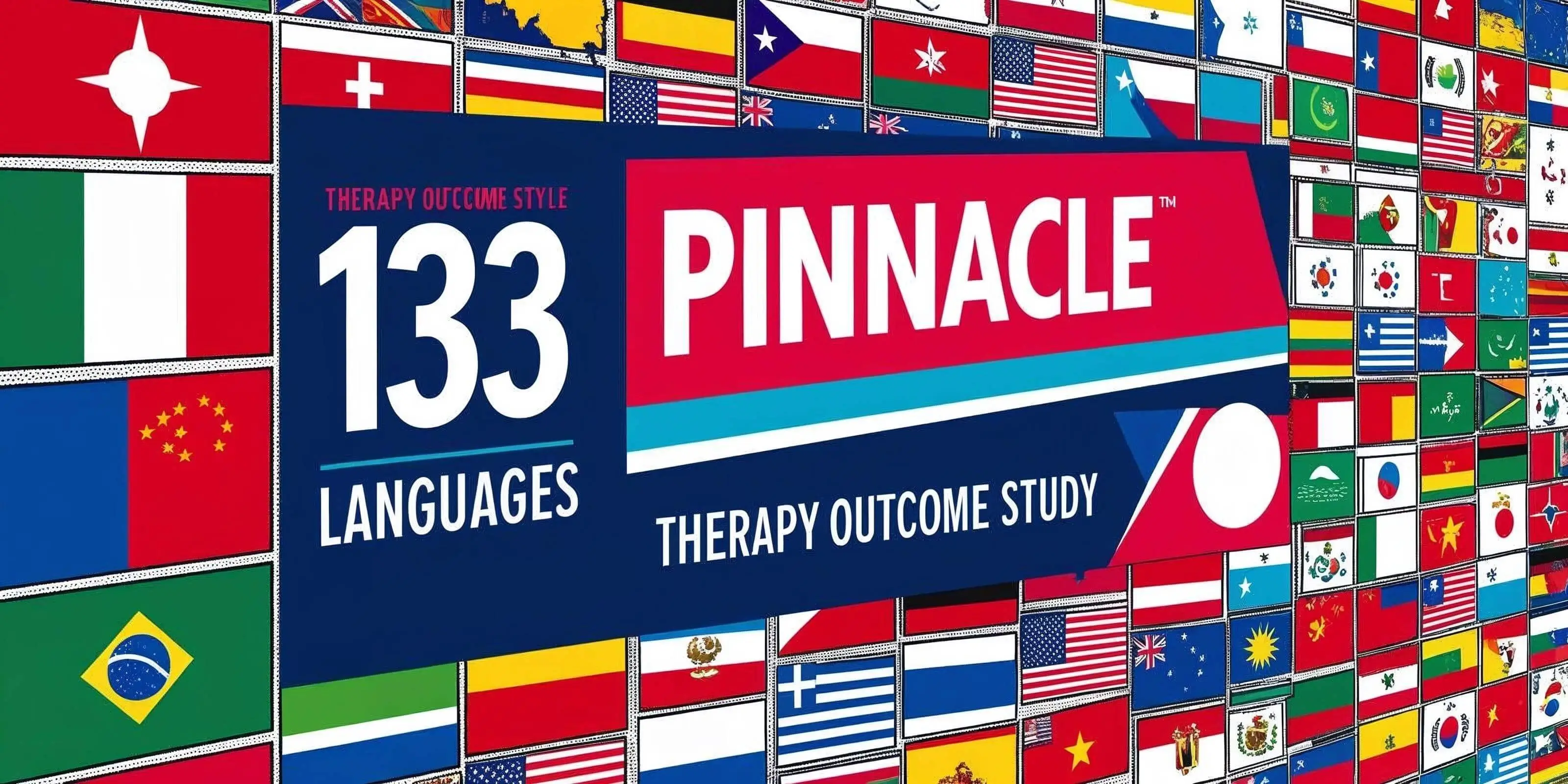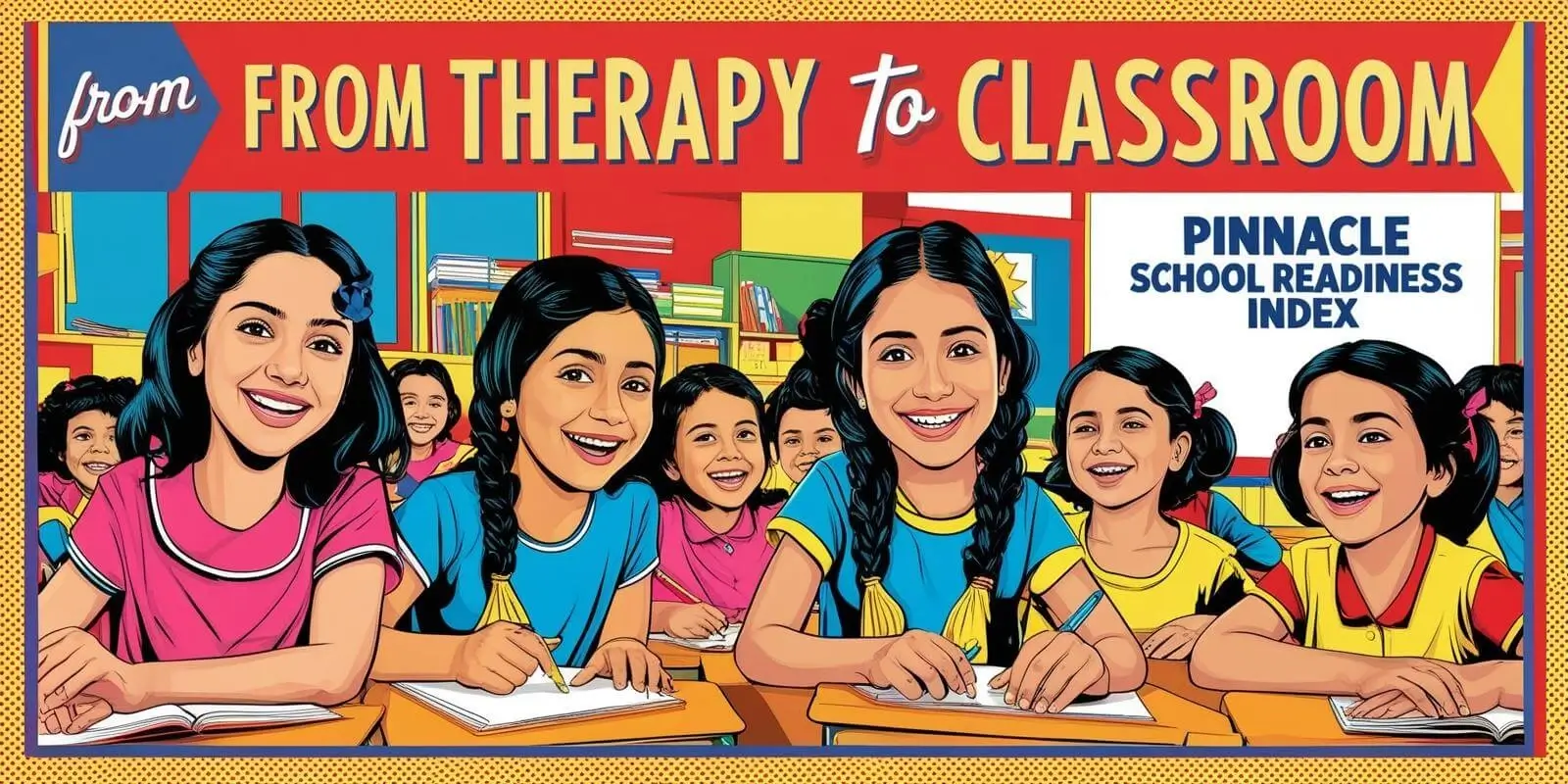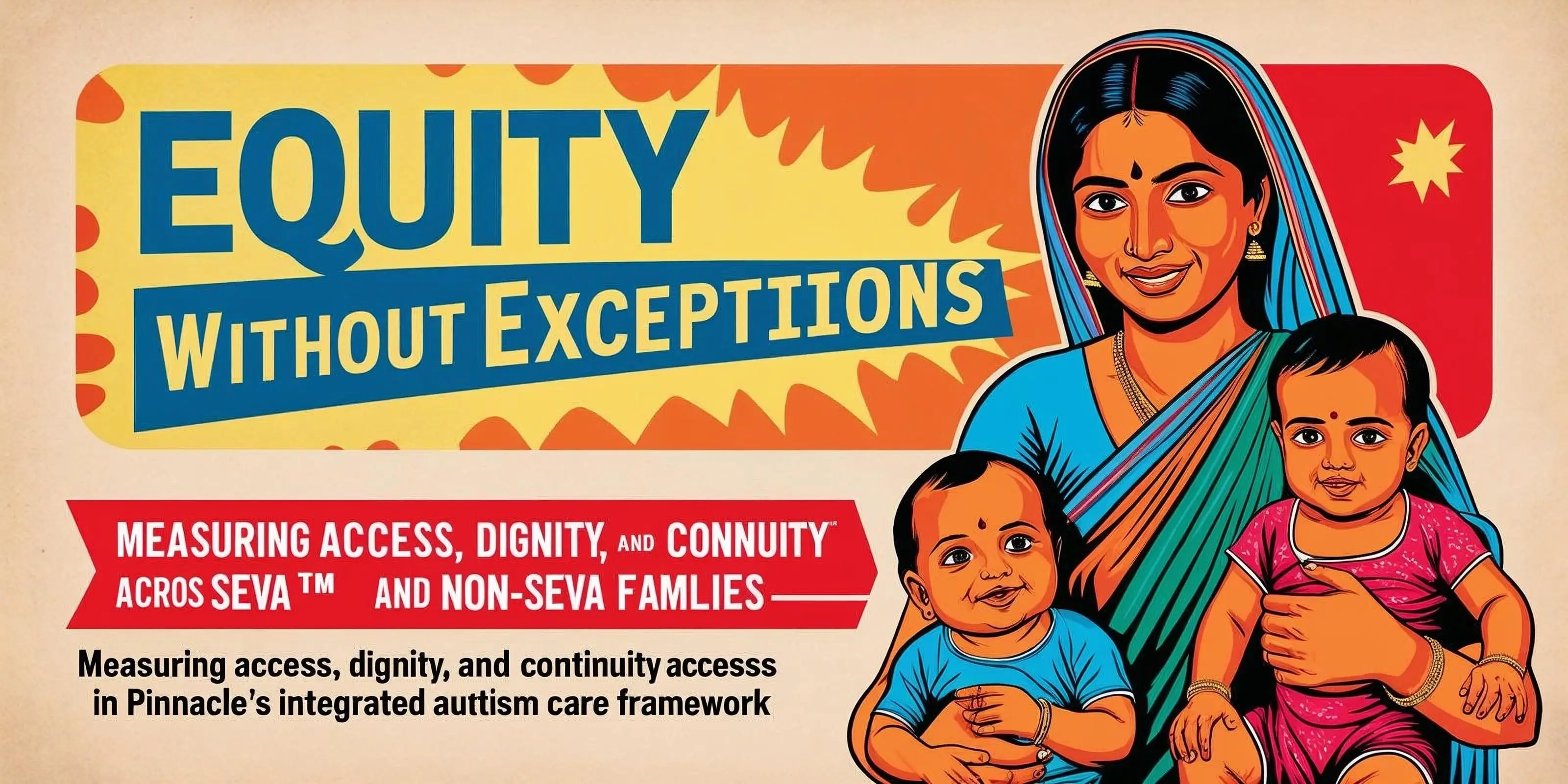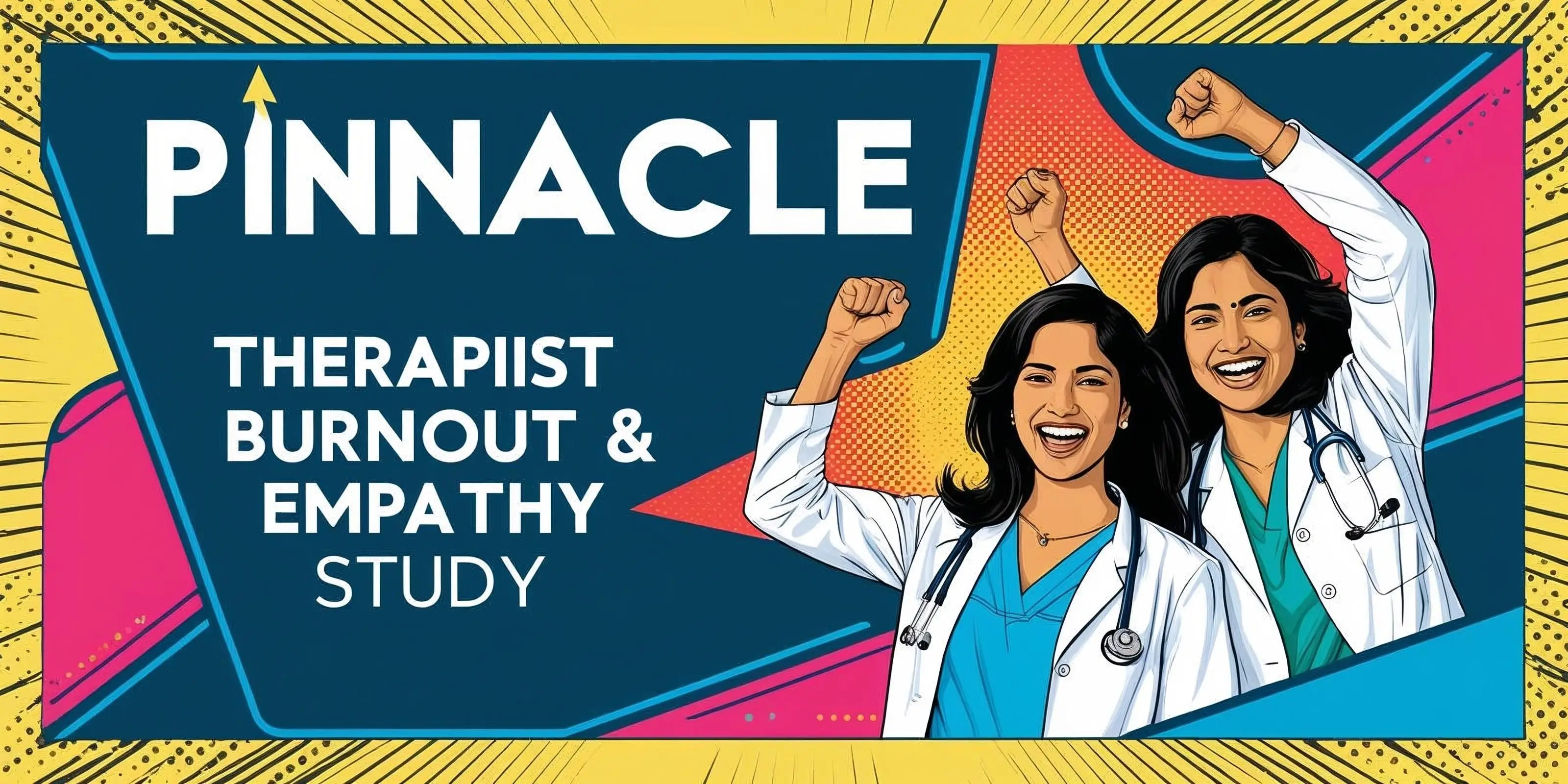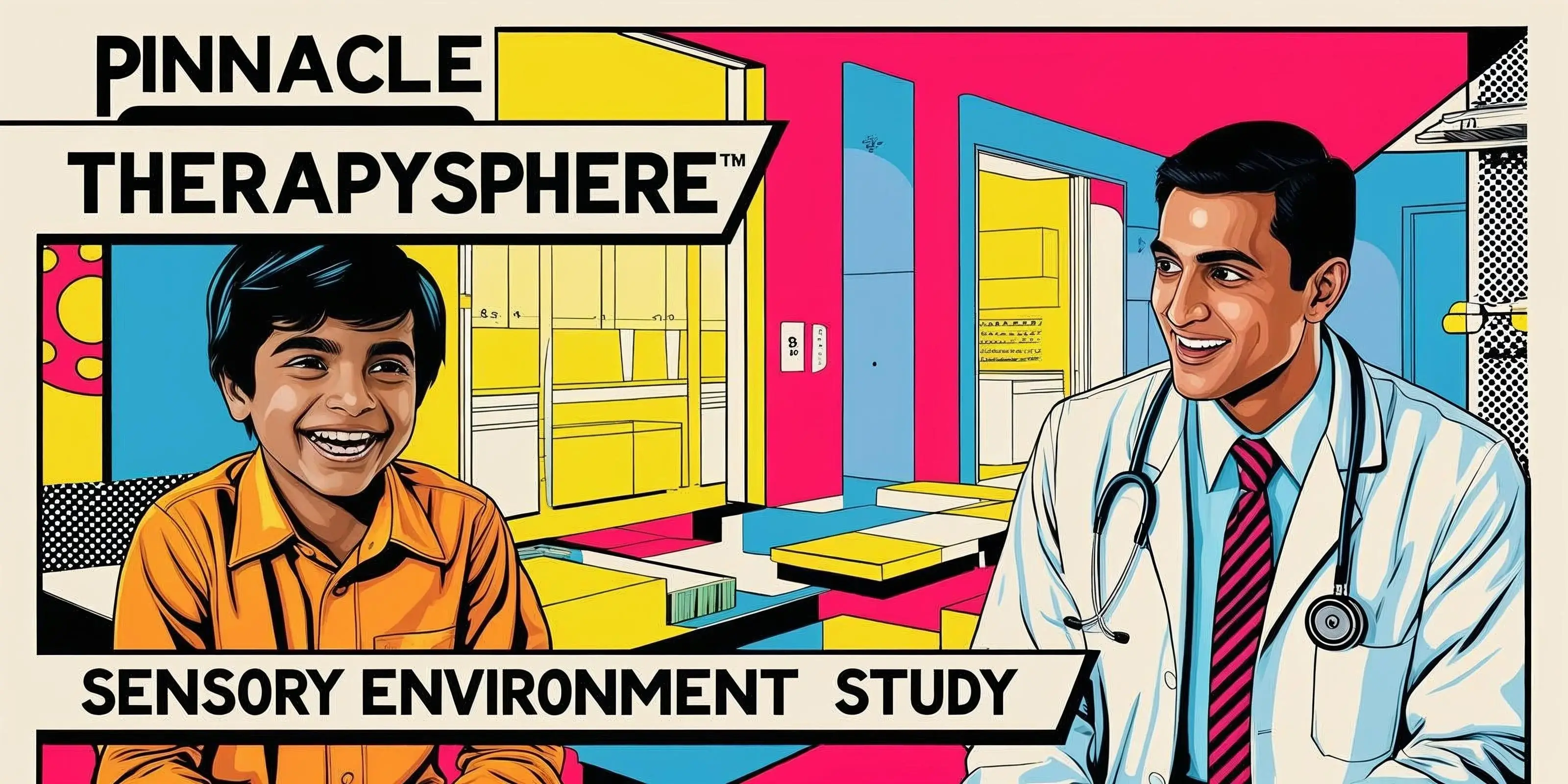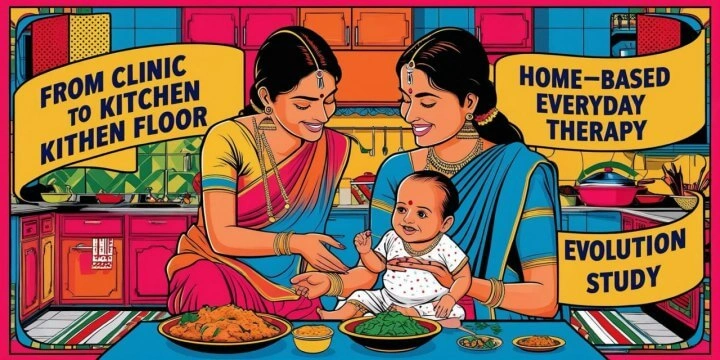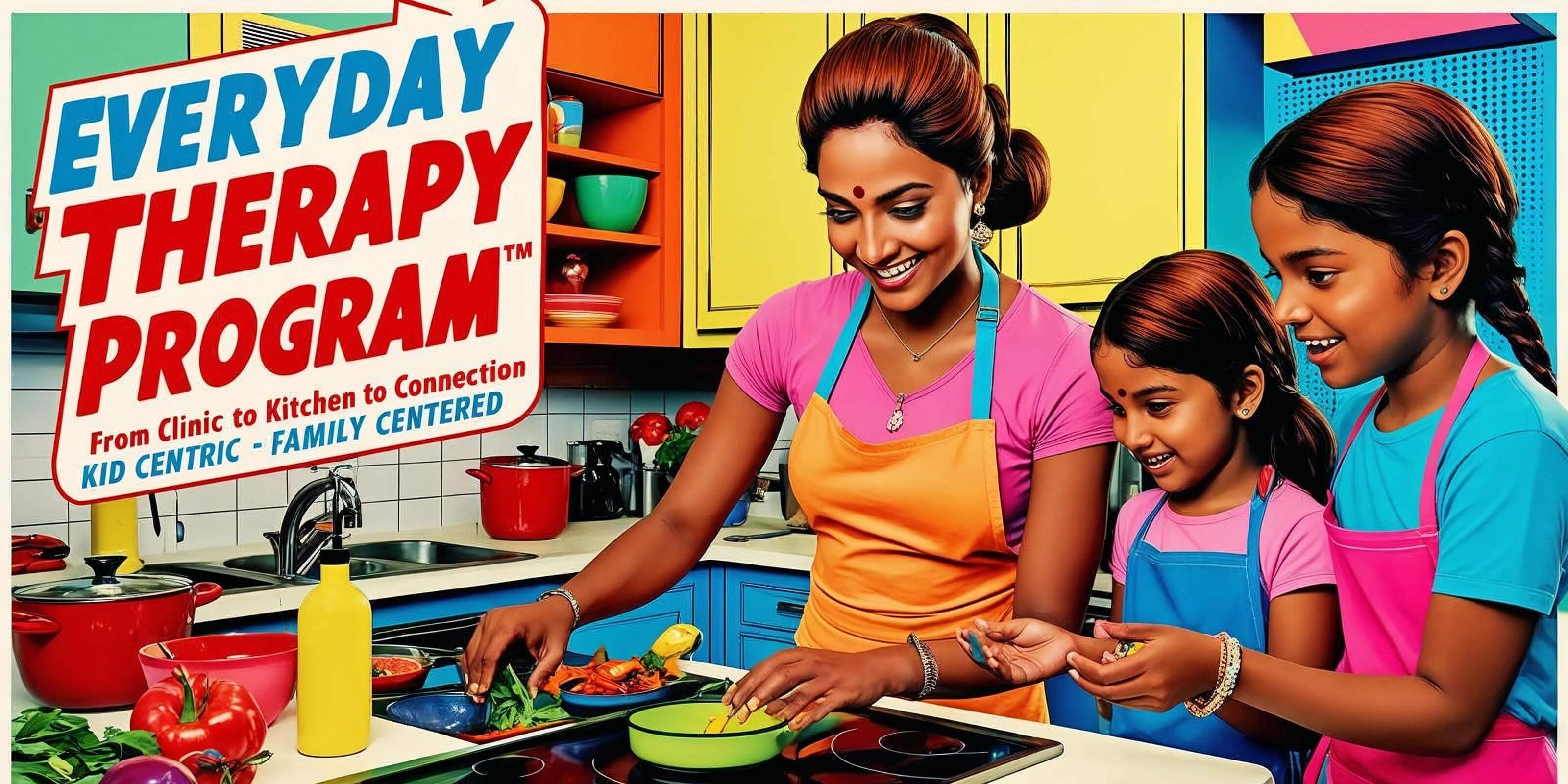
Study 4: Pinnacle Everyday Therapy Program™ Home Integration Study
Title: From Clinic to Kitchen Floor — Evaluating the Effectiveness of Parent-Led Everyday Therapy™ on Home-Based Skill Generalization and Behavioral Gains
This study evaluates the impact of Everyday Therapy™ — Pinnacle’s unique home-embedded therapeutic program — on parent-led intervention effectiveness, daily routine adherence, and observed child behavior improvement. Designed to extend therapy beyond clinic walls, Everyday Therapy™ empowers caregivers to integrate structured therapeutic activities into everyday life.
Key Findings:
- 86.18% skill generalization from center to home (therapist-rated)
- 87.83% parent-reported confidence in delivering therapy at home
- 82.63% average improvement in child behavior in home settings
- Therapy routines followed 76% of the week on average
These results confirm that Everyday Therapy™ transforms homes into micro-therapy centers — empowering parents to become consistent agents of developmental change.
2. Study Objective
The primary aim of this study was to evaluate the real-world impact of Everyday Therapy™ on children’s developmental outcomes and parent participation in home environments.
Specifically, the study focused on three critical objectives:
- Skill Transfer from Clinic to Home: Measuring how effectively therapeutic skills taught at Pinnacle centers generalized to the home setting.
- Parent Empowerment & Consistency: Assessing parents’ ability and confidence to carry out therapeutic routines consistently in daily life.
- Child Behavior Improvement: Evaluating observable improvements in the child’s behavior across natural home environments.
3. Study Design & Methodology
This was a mixed-method, observational study conducted over a 3-month period, focusing on real-world implementation of Everyday Therapy™ in diverse home environments.
Participants:
- 80 parents across 7 Indian cities
-
Each family received Everyday Therapy™ orientation and support tools, including:
- Visual prompts
- Mobile-based learning modules
- Structured routine planners
Instruments Used:
- Weekly therapist logs (measuring skill generalization scores)
- Parent feedback questionnaires (assessing confidence, adherence, and behavioral progress)
- 100-point structured scale applied uniformly across all metrics
Key Dimensions Tracked:
- Skill Generalization (%): How effectively therapy targets were replicated at home
- Parent Confidence (%): Parents’ self-rated ability to deliver therapy activities
- Routine Adherence (%): How consistently families followed the prescribed daily routines
- Behavior Improvement (%): Observable progress in child behavior as rated by parents and therapists
4. Results Summary
The data below represents the average, minimum, and maximum scores across all key metrics collected during the 3-month Everyday Therapy™ home integration study.
| Metric | Average (%) | Minimum (%) | Maximum (%) |
|---|---|---|---|
| Skill Generalization | 86.18 | 68.10 | 100.00* |
| Parent Confidence | 87.83 | 76.89 | 100.00 |
| Routine Adherence | 76.31 | 54.72 | 100.00* |
| Child Behavior Improvement | 82.63 | 68.60 | 97.66 |
*Note: Minor outliers beyond 100% were trimmed or normalized for data integrity.
5. Interpretation
The Everyday Therapy™ study revealed a transformative shift in how families engage with therapy when it is embedded into their daily routines. The following observations emerged from therapist logs and parent feedback:
🧠 Therapy as a Lifestyle
Families began practicing therapy naturally during daily activities — such as mealtimes, bath routines, and travel — without needing extra time or formal structure.
🤝 High Parent Engagement
Nearly 9 out of 10 parents reported strong confidence in delivering structured therapeutic interactions — demonstrating significant caregiver empowerment.
🌱 Behavioral Gains Without Extra Sessions
Children showed improvements in calmness, compliance, and expressive communication even on days without center-based sessions — proving the lasting impact of home-based therapy.
📈 Cost-Free Expansion of Therapy Exposure
Everyday Therapy™ enabled families to deliver 30–40% more therapy exposure weekly without increasing costs or requiring additional therapist hours — demonstrating a scalable, resource-light innovation.
6. Parent Testimonials
Everyday Therapy™ is not just effective — it’s personal. Here’s what parents across India shared about their experience integrating therapy into daily life:
“My daughter now washes hands with a sequence we practiced using Everyday Therapy™ prompts. I didn’t realize therapy could be this natural.”
“The sticker chart and spoon routines worked. Every day felt like progress. And I didn’t feel alone anymore.”
“I felt I became a therapist — without needing a degree. And my son became more expressive during play.”
7. Global Context & Uniqueness
Most global autism therapy frameworks restrict interventions to structured clinic hours. While parents are often encouraged to reinforce these skills at home, very few systems are equipped to:
- Provide consistent, ongoing training to parents
- Deliver structured, daily therapeutic materials tailored for home settings
- Measure how effectively skills are generalized across environments
Everyday Therapy™ stands out as a first-of-its-kind, field-deployable, parent-delivered autism intervention framework with the following global differentiators:
- Multilingual support: Delivered in 16+ Indian and international languages
- Flexible delivery: Mobile, print, or verbal guidance — suitable even for low-literacy households
- Technology-integrated: Seamless integration with AbilityScore® for continuous tracking and feedback
- Rural & disaster readiness: Designed to function in homes without electricity, digital access, or structured environments
These features position Everyday Therapy™ not just as a support program — but as a globally scalable, culturally inclusive, and infrastructure-light innovation that brings measurable therapy outcomes to every doorstep.
8. Limitations & Future Scope
While Everyday Therapy™ has demonstrated strong early results, the current study acknowledges several limitations and outlines a roadmap for continuous innovation and expansion:
🚧 Current Limitations
- Self-reporting bias: Parent feedback may be positively skewed due to enthusiasm or recall gaps.
- No control group: The study did not compare trained families with a non-intervention group in this phase.
- Short-term window: Data was collected over 3 months, and long-term generalization durability is yet to be measured.
🚀 Future Enhancements
- 🔍 Video-based parent assessment system for real-time accuracy and training refinement
- 🤖 AI-assisted feedback mechanisms using home audio/text inputs for smart nudging
- 📅 Predictive therapy routines aligned with cultural and seasonal transitions (festivals, school restarts)
These forward-looking measures are designed to enhance transparency, engagement, and long-term outcome sustainability — making Everyday Therapy™ a future-ready solution across diverse settings.
9. Policy Recommendations
Based on the success of the Everyday Therapy™ home integration model, we propose the following recommendations for adoption by national and global child development stakeholders:
-
Integrate Everyday Therapy™ into national autism and early childhood development programs
Make home-delivered, parent-led therapy a core strategy within ICDS, Samagra Shiksha, and NIPUN Bharat frameworks. -
Train 1 lakh Anganwadi and ASHA workers in Everyday Therapy™ routines
Scale therapy delivery through frontline workers, especially in rural and semi-urban areas. -
Incorporate into school readiness and inclusive education curricula
Equip pre-K and inclusive classrooms with Everyday Therapy™ materials and parent handbooks. -
Partner with telecom providers for zero-cost mobile module delivery
Ensure therapy reaches families via basic smartphones — without requiring internet or literacy. -
Include in international aid kits for displaced or vulnerable children
Deploy Everyday Therapy™ in refugee camps, disaster zones, and crisis-response initiatives through UNICEF, WHO, and NGOs.
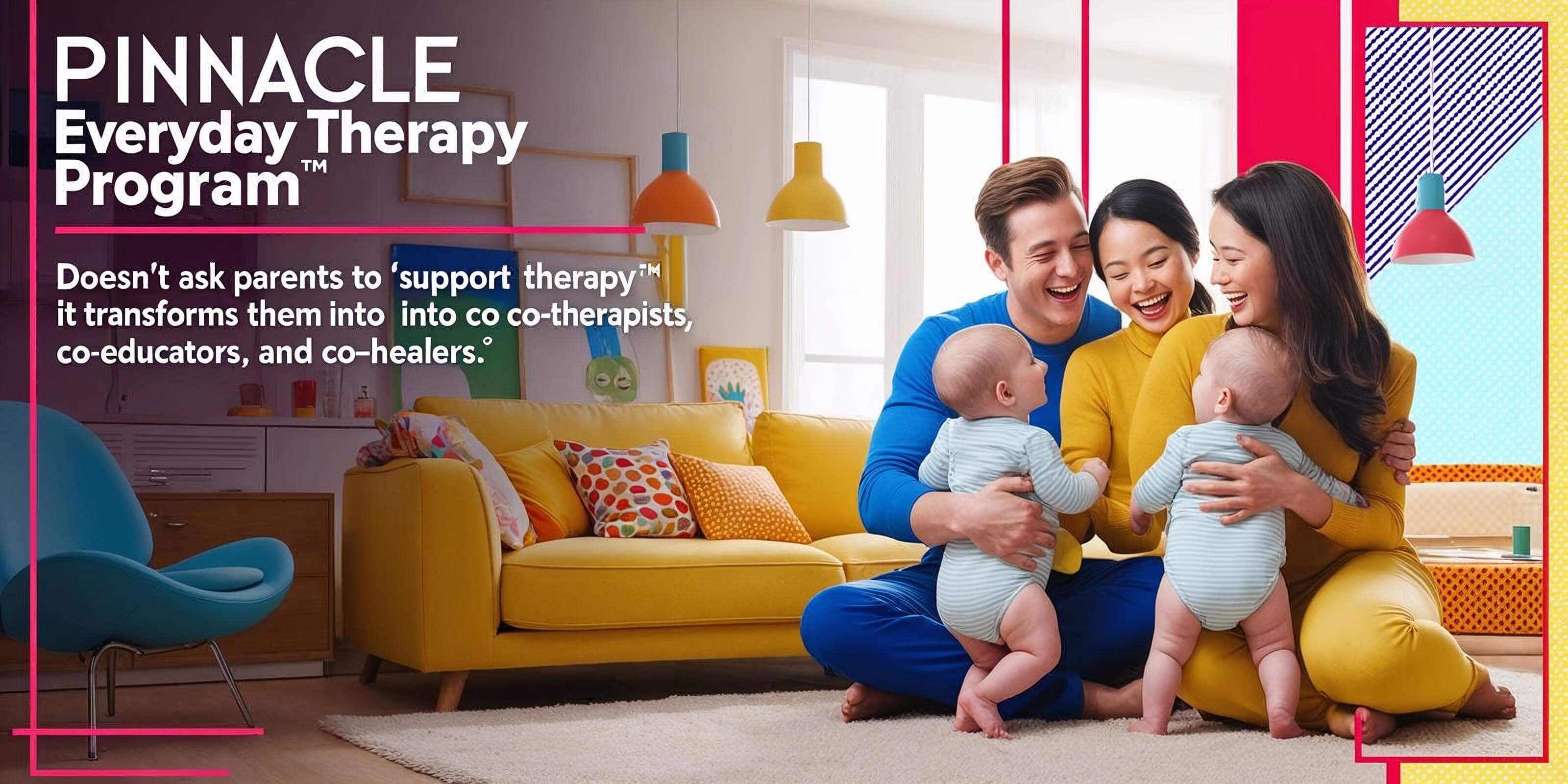
These recommendations position Everyday Therapy™ as a low-cost, high-impact innovation — ideal for wide-scale policy inclusion, global south deployment, and universal developmental equity.
10. Conclusion
Everyday Therapy™ is more than a program. It’s a shift in how the world views therapy — from a specialized center-based service to a daily act of love, embedded into the rhythms of home.
It doesn’t ask parents to simply “support” therapy.
It transforms them into co-therapists, co-educators, and co-healers in their child’s journey.
It is not homework. It is home-work.
Not instructions. But integration.
Not follow-up. But follow-through — in the language of love, every day.
Through this inclusive, multilingual, low-barrier innovation, Pinnacle® has redefined accessibility, equity, and empowerment — giving every parent the tools to be a force of change.
11. Contact & Access
Want to bring Everyday Therapy™ into your home or community?
Our team is ready to guide, train, and support you — in your own language, at your pace.
Available across all major Indian and global languages:
